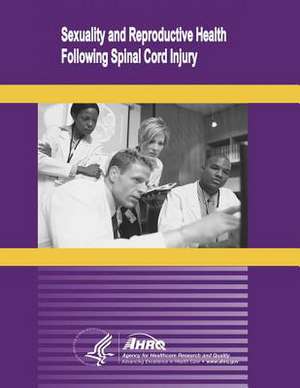Sexuality and Reproductive Health Following Spinal Cord Injury
Autor U. S. Department of Heal Human Services, Agency for Healthcare Resea And Qualityen Limba Engleză Paperback
Preț: 172.05 lei
Preț vechi: 181.10 lei
-5% Nou
Puncte Express: 258
Preț estimativ în valută:
32.93€ • 35.78$ • 27.68£
32.93€ • 35.78$ • 27.68£
Carte disponibilă
Livrare economică 31 martie-14 aprilie
Preluare comenzi: 021 569.72.76
Specificații
ISBN-13: 9781499513516
ISBN-10: 1499513518
Pagini: 254
Dimensiuni: 216 x 279 x 13 mm
Greutate: 0.59 kg
Editura: CREATESPACE
ISBN-10: 1499513518
Pagini: 254
Dimensiuni: 216 x 279 x 13 mm
Greutate: 0.59 kg
Editura: CREATESPACE
